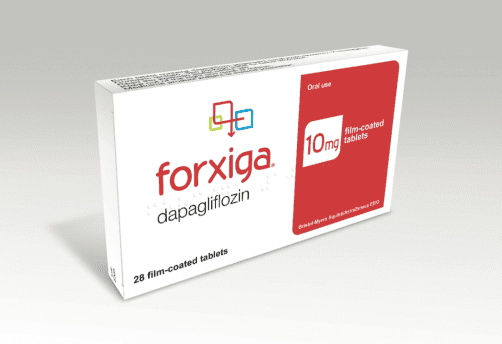
AstraZeneca has more data showing that its SGLT2 inhibitor Farxiga can prevent complications of type 2 diabetes, this time showing it can reduce the progression of kidney disease or renal death.
The DECLARE-TIMI 58 trial has already revealed that Farxiga (dapagliflozin) can reduce cardiovascular complications in diabetes patients, but a new subgroup analysis shows it can also cut the risk of kidney function decline, end-stage renal disease or renal death by 47% compared to placebo.
The results – presented at the American Diabetes Association congress and published in The Lancet Diabetes & Endocrinology – suggest that Farxiga could play a role in tackling both heart failure and kidney disease, data that could help it consolidate its position in the SGKT2 inhibitor market.
According to AZ’s head of late-stage development for cardiovascular, renal and metabolism drugs Elisabeth Björk, heart and renal disease are “two of the most common and early complications experienced by people living with type-2 diabetes, and are too often overlooked.”
Farxiga is already growing nicely for AZ, with sales up 30% to $1.39bn last year. At the same time first-to-market Invokana (canagliflozin) from Johnson & Johnson – which also has positive results on renal disease from the CREDENCE study – has been shrinking since the FDA added a label warning of lower-limb amputations risk in 2017.
AZ’s biggest competitor is Eli Lilly and Boehringer Ingelheim’s market-leading Jardiance (empagliflozin), which brought in $658m and around $2bn respectively for the two partners in 2018.
Jardiance has some encouraging results from a subgroup analysis in kidney disease from the EMPA-REG cardiovascular outcomes study and last year started a dedicated 5,000-patient study – EMPA-KIDNEY – to explore that further.
AZ’s trial is different to those involving the other SGLT2 inhibitors in that included both patients with and without atherosclerotic cardiovascular disease, mostly with normal or only mildly reduced renal function.
That’s a larger and more diverse group of patients than the CANVAS trial of Invokana and EMPA-REG, which included mostly patients with established atherosclerotic cardiovascular disease or mild to moderate chronic kidney disease, or both, according to the trial investigators in their study paper.
Meanwhile, the CREDENCE trial included patents with kidney disease, measured by a reduced estimate glomerular filtration rate (eGFR), while more than two thirds of the DECLARE-TIMI 58 population had normal eGFR at enrolment.
“These results emphasise the value of SGLT2 inhibitors as an important component of both prevention and treatment of chronic kidney disease among patients with type 2 diabetes,” conclude the authors.




